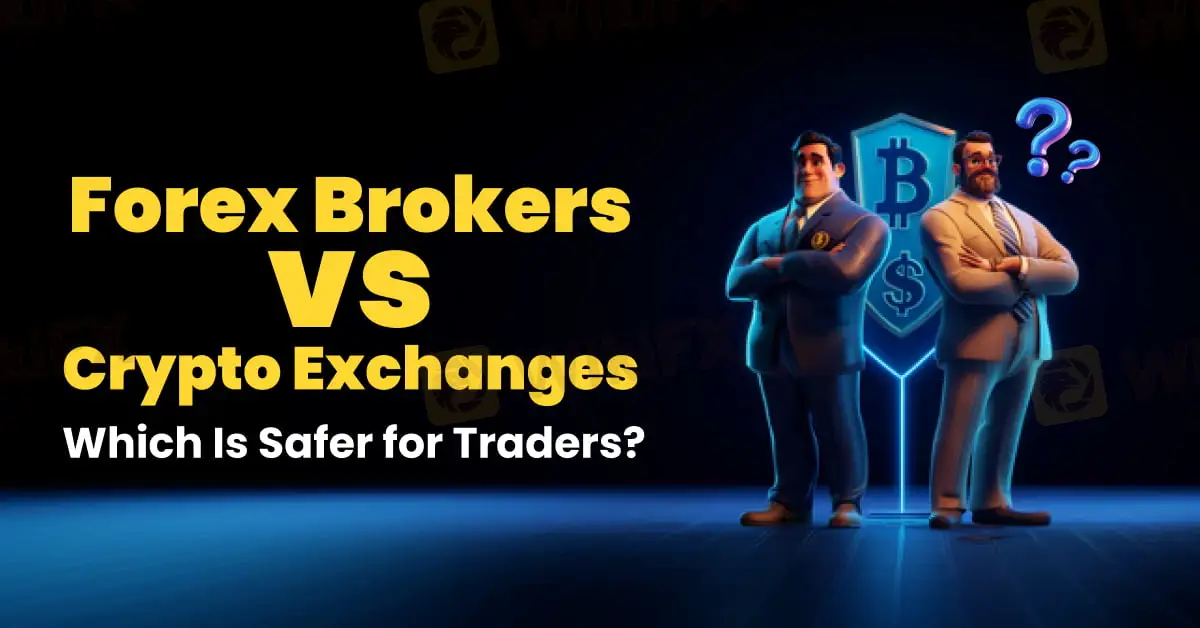Abstract:The world of trading offers two major platforms: forex brokers and cryptocurrency exchanges. Both provide opportunities, but they also come with risks. Traders often wonder which is the safer option. While some lean towards traditional forex brokers, others trust the decentralised nature of crypto exchanges. Let us know if you are #TeamForex or #TeamCrypto!

The world of trading offers two major platforms: forex brokers and cryptocurrency exchanges. Both provide opportunities, but they also come with risks. Traders often wonder which is the safer option. While some lean towards traditional forex brokers, others trust the decentralised nature of crypto exchanges.
Forex brokers have been part of the financial system for decades. They operate within well-established regulations. Authorities like the Financial Conduct Authority (FCA) and the Australian Securities and Investments Commission (ASIC) oversee their operations. These regulations aim to protect traders by ensuring transparency and fairness. Forex brokers must segregate client funds and provide financial reports. However, the level of protection varies by country. In some regions, oversight may be less strict, leaving traders exposed to fraud or malpractice.
On the other hand, crypto exchanges are relatively new and often operate in a decentralised environment. This lack of regulation appeals to traders who value freedom. Yet, it also raises safety concerns. Many crypto exchanges have fallen victim to hacking. For instance, high-profile breaches have led to the loss of millions in assets. Some exchanges lack proper insurance or security measures. Traders might feel uneasy entrusting their funds to platforms without established safeguards.
Another factor to consider is transparency. Forex brokers typically offer detailed information about trading fees and spreads. They also provide demo accounts for practice. However, hidden costs can still catch traders off guard. Crypto exchanges, meanwhile, boast lower transaction fees. But price manipulation and sudden liquidity issues can pose serious threats. Transparency in crypto trading depends largely on the platform's integrity.

The accessibility of both platforms is another point of discussion. Forex brokers offer a more straightforward entry point. They provide tools and support, making it easier for beginners to learn. Crypto exchanges, however, appeal to tech-savvy traders. The 24/7 nature of crypto markets offers flexibility. But this constant activity may overwhelm new traders, leading to rash decisions.
Risk management is a shared concern. Forex brokers offer leverage, which can amplify both gains and losses. While leverage is attractive, it requires caution. In contrast, crypto exchanges are known for their market volatility. Prices can swing drastically within hours. For traders, this creates both opportunities and risks. Deciding between these platforms depends on individual risk tolerance.

WikiFX offers essential tools and resources for verifying the legitimacy of brokers and exchanges. With an extensive database of global broker profiles, regulatory status updates, and user reviews, WikiFX empowers users to make informed decisions before committing to any financial investment. The apps risk ratings and alerts for unlicensed or suspicious entities enable investors to easily spot red flags and avoid potential scams. Keep yourself safe by downloading the free WikiFX mobile application from Google Play or App Store today!












